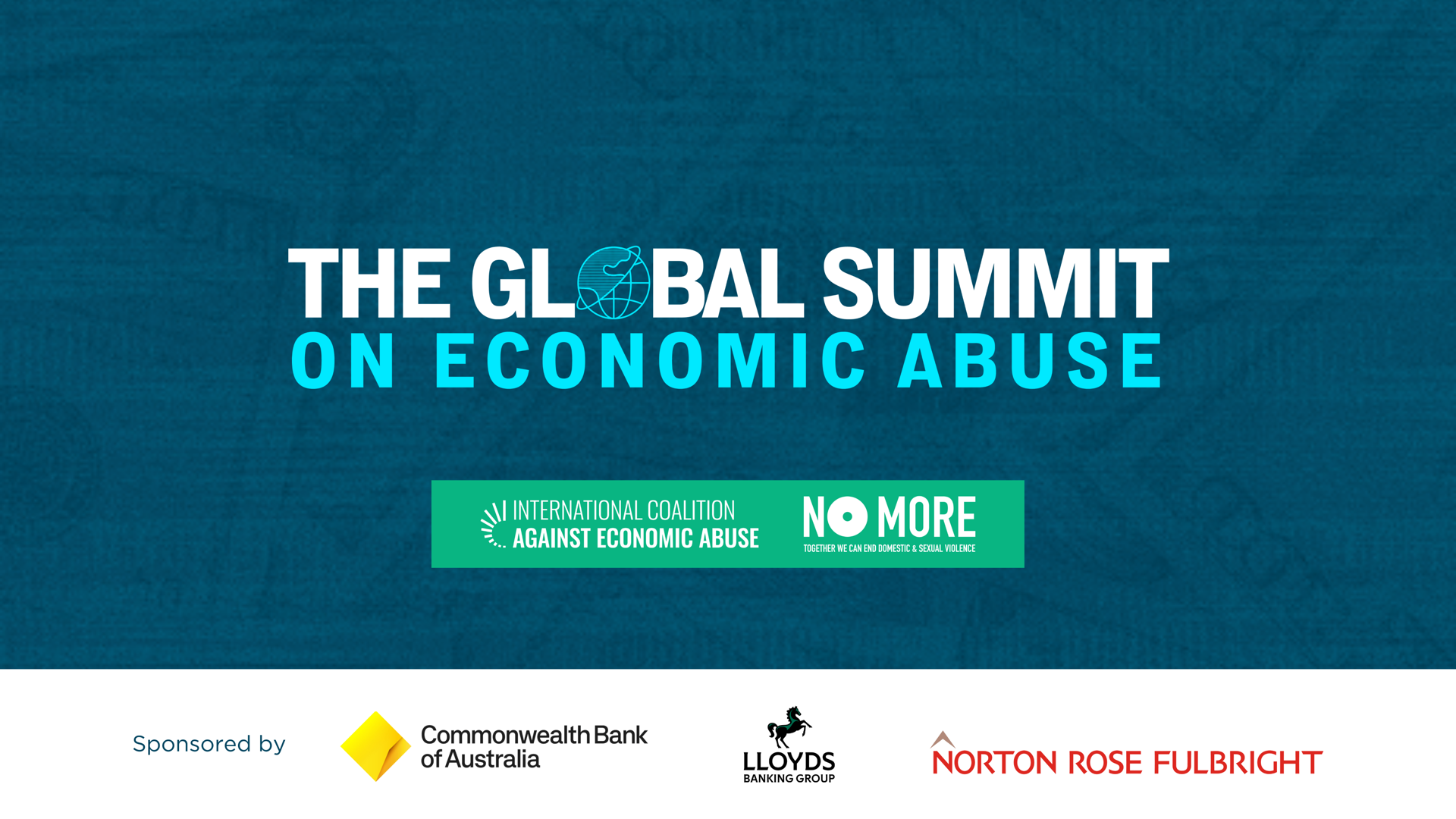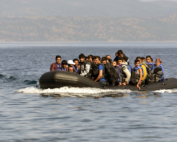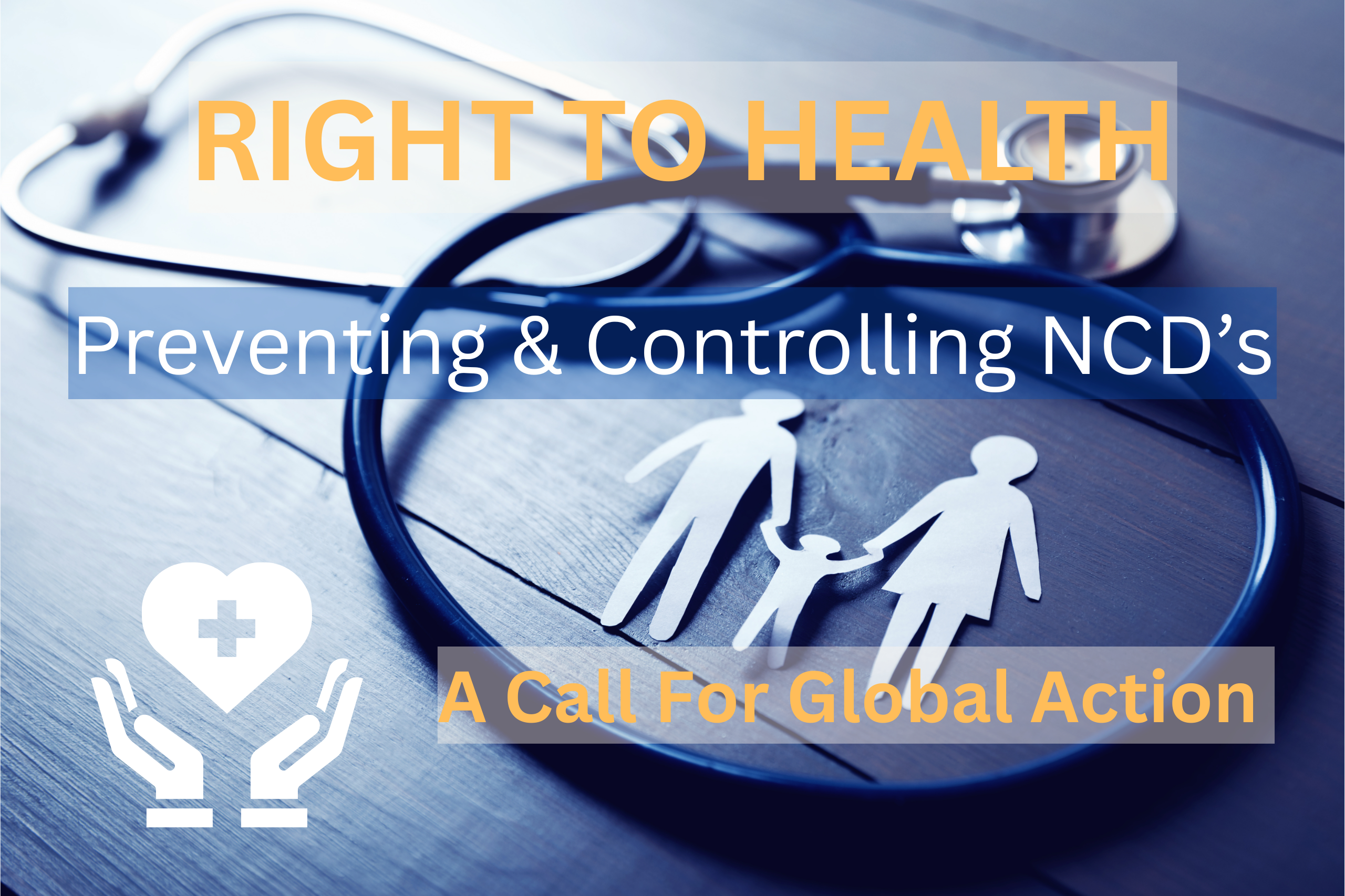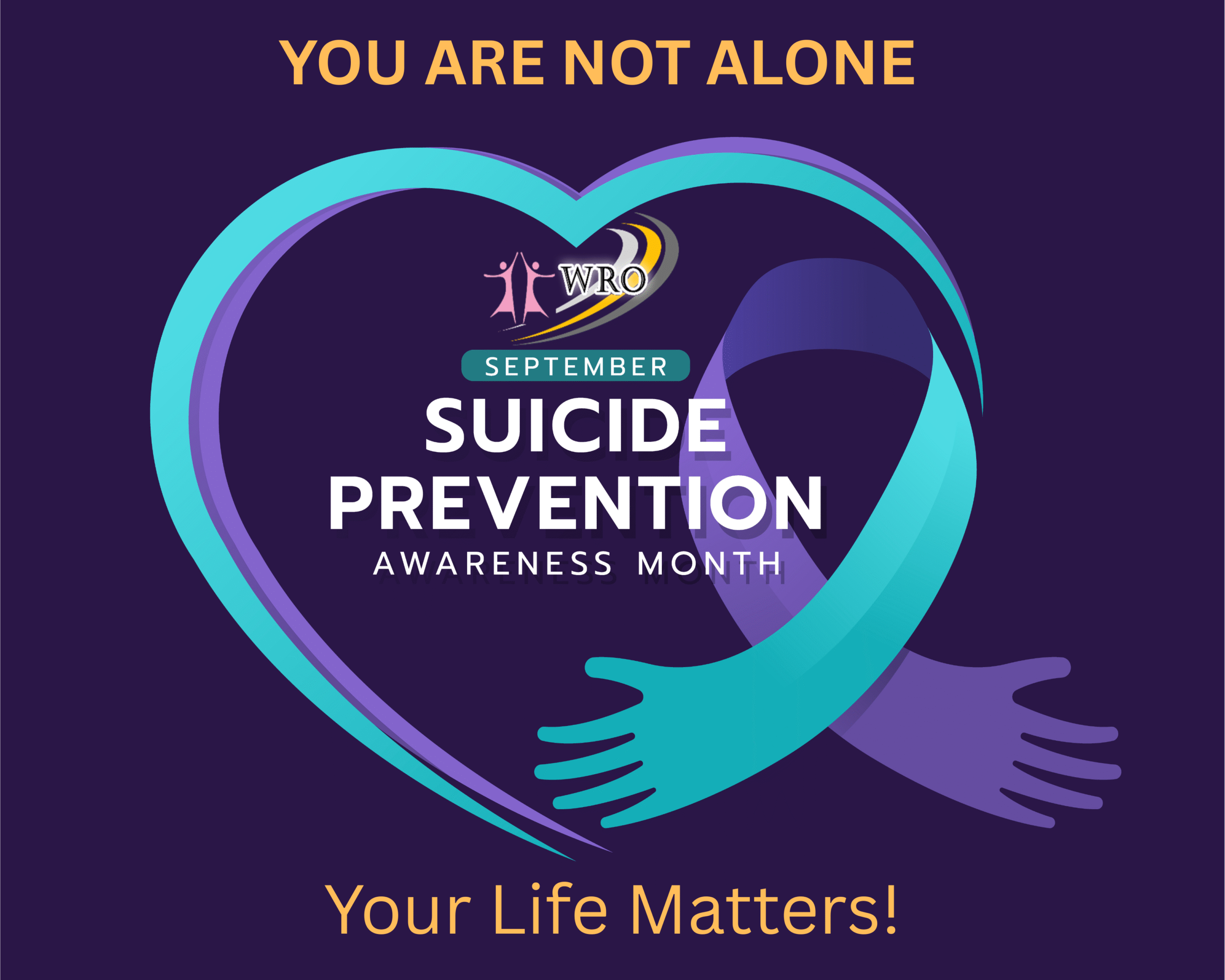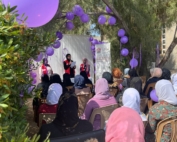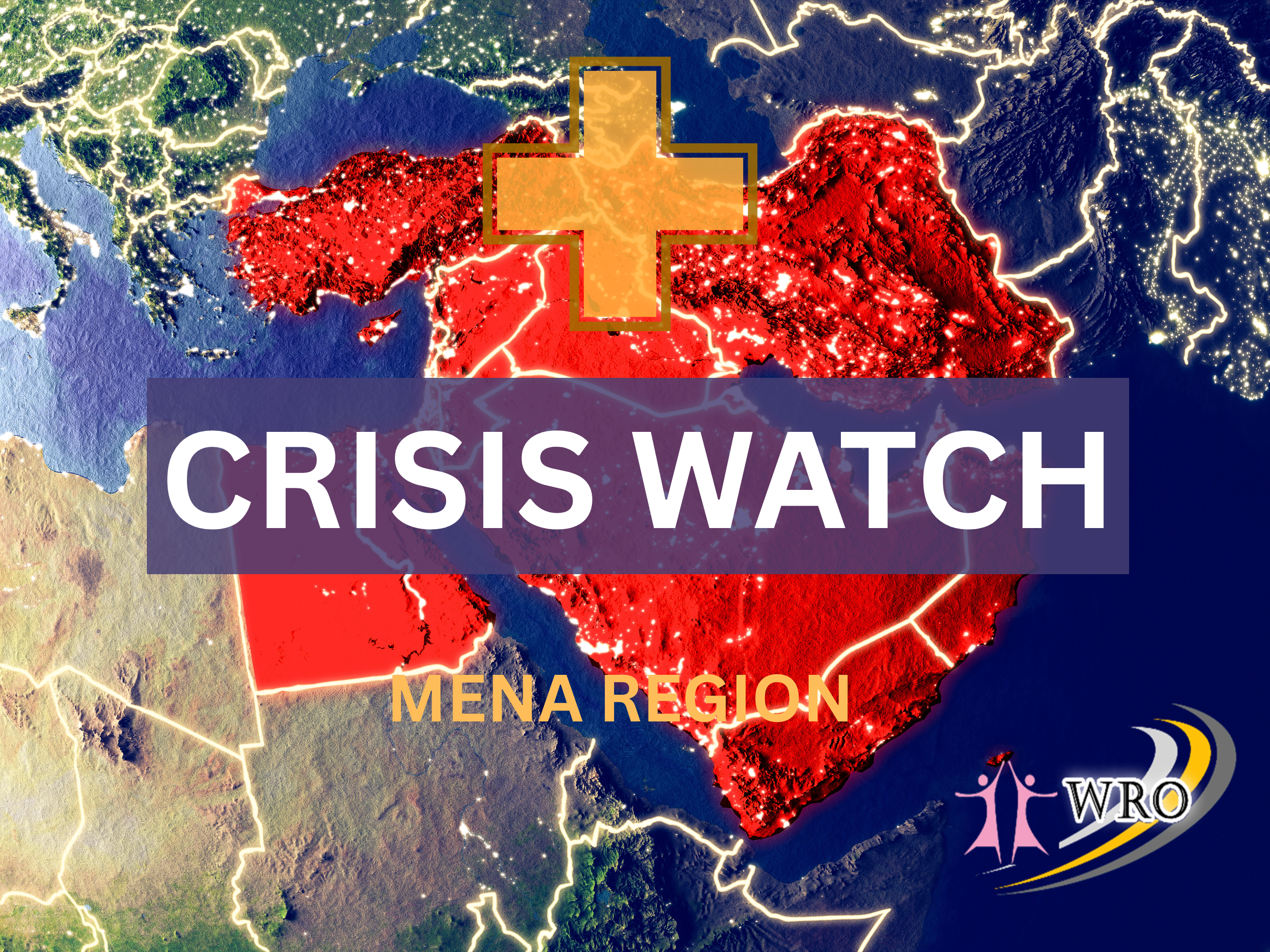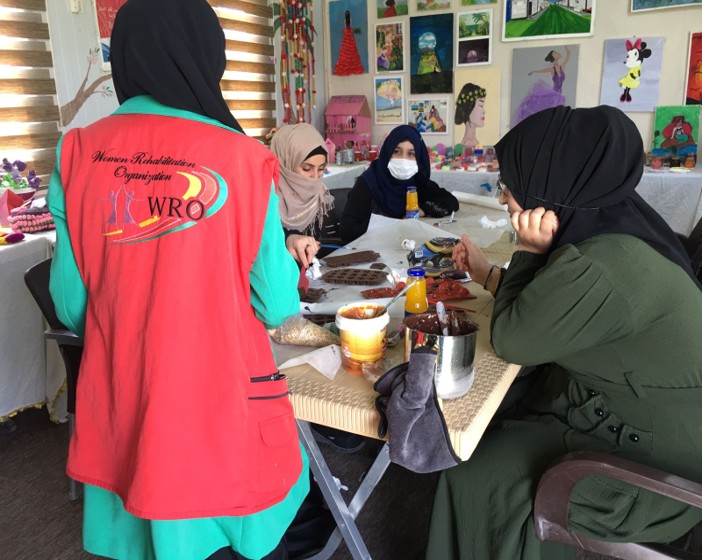
DRIVEN TO ACT BUILT TO SERVE
We are Community Voice Catalysts—amplifying voices, driving positive change, and serving with purpose. As agents of transformation, we empower communities through action, advocacy, and compassion—building a brighter and more just future together.
Message From Our Founder
As we reflect on this past year, we are reminded once again of the extraordinary resilience and unwavering determination of the people of the Middle East region. Amid ongoing challenges—from the legacies of conflict and displacement to economic instability and forward uncertainty—our communities continue to rise. They do so not only with strength and compassion, but with a clear and enduring vision for a future grounded in peace, dignity, and opportunity for all.
This year, our work has deepened in response to both urgent needs and long-term goals. We have remained steadfast in meeting the life-saving needs of the most vulnerable, while confronting the persistent drivers of violence and discrimination. Our commitment to empowering women, youth, and marginalized groups has remained central—not just as a principle, but as a practice in everything we do.
We have continued to create space for healing, opportunity, and leadership. Through reintegration and returnee support programs, we are helping individuals rebuild lives and livelihoods—fostering prosperous communities that limit forced emigration and offer people the chance to thrive in their own homeland. These efforts are not only essential for personal recovery, but also for the broader stabilization and peacebuilding of local communities and the wider region.
Throughout the year, our partnerships have grown stronger and more strategic. Whether through collaboration with government, academia, the private sector, or civil society actors, we have remained committed to building bridges—across divides, across disciplines, and across communities. Our advocacy has achieved meaningful gains, yet we know that lasting change requires a healthy, empowered civil society that works hand in hand with all sectors to build a future defined by inclusion, safety, and shared prosperity.
Progress is never linear. But it is possible—and it is happening. Every day, we witness the courage of individuals standing up for justice, leading change, and reimagining what is possible. This is what drives us forward: the belief that transformation is not only necessary, but within reach.
Thank you for walking this journey with us. Your solidarity makes our work possible
Jihan Mustafa Ibrahim
Founder and President
Our Story In Numbers
Communities, partners, teams, and stakeholders —
they believe in us
Founded in 2003, as a grassroots women’s union in Mosul, Iraq, Women Rehabilitation Organization (WRO), a non-profit, non-governmental, and independent organization, has become one of the region’s largest, most experienced, and influential women’s rights civil society organizations—dedicated to supporting and advocating for all in need, women, men, girls, and boys, regardless of background or circumstance in accordance with guiding humanitarian principles.
For over 22 years WRO has been working through its mandate to promote equal participation, decision-making and leadership in ensuring human rights and fundamental freedoms for all, catalyzing systemic change, eradicating poverty, combatting violence against women and girls, promoting inclusive support for vulnerable men and boys, protecting child rights, improving access to health, education, and economic empowerment opportunities, advancing equal and fair legal pathways to justice, addressing climate change, combating violent extremism, shaping the future by empowering youth, driving peaceful coexistence, reconciliation, and conflict resolution, fostering civic engagement, tolerance, and reintegration and recovery, building capacities of local governments, strengthening civil society sustainability, and shaping norms for localization development.
As a national and regional expert in holistic individual, family and community participation and empowerment, WROs efforts have shed light locally and marginalized groups rights in Iraq and the Middle East through initiatives that directly impact tens of thousands of families each year including though provision of lifesaving support and developmental dignified solutions and services that drive individual and collective healing, integration, inclusion, self-resiliency, self-efficacy, self-determination, and peaceful coexistence with dignity and care.
In partnership with local, regional, and global civil society, international organizations, and government bodies, WRO has effectively contributed to meeting individual and community needs through holistic, nexus-driven multi-sectoral programming. WRO has over a 22 year history of collaborative work at the national, regional and international level where in partnership with local, regional, and global civil society, international organizations, and government bodies, has effectively contributed to meeting individual and community needs through holistic, nexus-driven multi-sectoral programming.
These partnerships include IOM, UNICEF, UNDEF, UNIDO, UNOPS, UNFPA, UNHCR, UN Women, USPRM, USAID, DANIDA, Global Affairs Canada, US Embassy Regional Reconstruction and Provincial Teams, Chemonics, DCEO, Cordaid, German Government, Malteser International, ASODH, Government of Japan, IRC, the Global Fund, WVI, Islamic relief, COS, Global Medic, DRC, NDI, LWF, IRI, DCA, DRC, and the Iraqi Civil Society Program.
Through its engagements and partnerships WRO has gained extensive international knowledge and experience Operationally in: Governance, Donor Relations, Finance Management, Compliance and Quality Management, Procurement and Logistics Management, Administration Management, H/R Management, Security Management and Programmatically in Donor Relations, MEAL Management, Advocacy, Multi-Sectorial Programming, AAP, Humanitarian Policies, Standards, and Protocols, PCM, Program and Portfolio Management, Change Management, Proposal and Reporting, Coordination, etc.
WRO engages in active participation and engagement in the relevant local clusters, working groups, and humanitarian transitional tasks forces including; Governorate-level, District-Level, and National Protection, GBV and CP, Livelihoods, MHPSS, Clusters and Working Groups in Erbil, Dohuk and Ninewa in addition to the national Legal Working Group (LWG), Child Safeguarding Working Group (CSGWG), and Networks, including the Adolescent Girls Taskforce (AGTF), GBV Information Management Taskforce (GBVIMS), Technology-Facilitated GBV Task Force (TFGBVTF), Case Management Task Force (CMTF), Returns Working Group (RWG), Peace-Building and Reconciliation Working Group (PBRWG), Prevention of Sexual Exploitation and Abuse (PSEA) Task Force, and with the NGO Coordination Committee of Iraq (NCCI). WRO also continued to actively engaged as an official member with the Alliance for Child Protection in Humanitarian Action (ACPHA) and the Association of International Professionals in Humanitarian Assistance and Protection (PHAP). Furthermore, WRO has previously had the honor to serve as the Chair on the Executive Board of the NGO Coordination Committee of Iraq (NCCI), Co-Chair of the Adolescent Girls Taskforce, and observer member of the Humanitarian Pool Fund (IHPF) and the Humanitarian Country Team (HCT).
GUIDED BY VISION, DRIVEN BY MISSION
WRO envisions a future where every person—refugees, IDPs, and host communities alike—is safe, empowered, and able to thrive. By addressing the unique needs of all people through collaboration and collective action between government, civil society, and communities, we strive to build inclusive societies rooted in dignity, resilience, and peaceful coexistence.
WROs mission is to engage as humanitarian aid workers and champions for vulnerable populations in providing effective and efficient aid and development support to empower individuals and communities to become agents of change where every woman, man and child have not only access to a dignified life free from violence and discrimination, but the opportunity to grow and prosper in peace and happiness with dignity.
-
Provide high-quality, community-driven humanitarian and development services that are survivor-led, trauma-informed, and culturally grounded—addressing protection, gender-based violence, mental health, livelihoods, and legal needs. These services uphold dignity, empower marginalized populations—especially women and children—and promote healing, justice, and long-term systemic change.
-
Strengthen local systems and resilience through community engagement, capacity building, and collaboration with civil society, peace committees, and government actors. Foster trust, improve service delivery, and ensure access to integrated support during crises—while promoting social cohesion, reducing stigma, and equipping communities to respond to evolving protection risks.
-
Champion the rights, safety, and leadership of vulnerable communities by advocating for equal access to education, protection, and justice; supporting legal and policy reform; and holding governments, civil society, and communities accountable. Engage men and boys as allies in dismantling harmful norms, and build inclusive platforms for women’s voices in decision-making at every level.
-
Advance sustainable recovery and rights-based transformation by addressing root causes of displacement, inequality, and violence. Invest in locally led solutions that reduce vulnerability to violent extremism, create dignified futures at home, and build stable, peaceful communities through cross-sector partnerships, advocacy, and global solidarity.
Accountability and Transparency At Every Level
Ensuring openness in decision-making, resource allocation, and reporting to build trust with partners and communities.
Accountability to Affected Populations
Our programs are designed with, and answerable to, the people and communities we serve.
UN, Sphere, ICRC, IASC, Do No Harm Humanitarian Standards
We align our work with internationally recognized humanitarian and protection standards.
Local Ownership and Stakeholder Engagement
We prioritize the voices and leadership of local actors in shaping solutions that affect them.
Needs and Evidence-Based Approaches
Our interventions are grounded in reliable data, contextual analysis, and community priorities.
Cross-Cutting and Context Dynamics
We integrate equity, sensitivities, and inclusion across all activities.
International Policies and Procedure Standards
Our operations adhere to global frameworks and best practices for humanitarian action.
Safeguarding and Protection from Exploitation and Abuse
We uphold dignity and protect individuals from harm in all aspects of our work.
Conflict Sensitivity and Peacebuilding
We design interventions that reduce tensions and contribute to sustainable peace.
Environmental Sustainability and Climate Sensitivity
We act responsibly to minimize harm to the environment and build climate resilience.
Inclusivity and Non-Discrimination
We actively include marginalized groups and promote equal participation.
Partnership and Collaboration
We build strong alliances with local, national, and international partners for greater impact.
Capacity Strengthening and Knowledge Sharing
We empower communities and organizations through skills, resources, and shared learning.
Monitoring, Evaluation, Accountability, and Learning (MEAL)
We continuously assess, adapt, and improve based on evidence and feedback.
Human Rights-Based Approach
We frame our programs within international human rights law and principles.
Resilience and Preparedness
We help communities strengthen their ability to face future crises with confidence and self-reliance.
OUR CORE VALUES

WRO’s Commitment To Humanitarian Action Standards and Principles
HUMANITY
Human suffering must be addressed wherever it is found. The purpose of humanitarian action is to protect life and health and ensure respect for human beings.
IMPARTIALITY
Humanitarian action must be carried out on the basis of need alone, giving priority to the most urgent cases of distress and making no adverse distinction on the basis of nationality, race, gender, religious belief, class or political opinion.
INDEPENDENCE
Humanitarian action must be autonomous from the political, economic, military or other objectives that any actor may hold with regard to areas where humanitarian action is being implemented.
NEUTRALITY
Humanitarian actors must not take sides in hostilities or engage in controversies of a political, racial, religious or ideological nature.
WRO’s Policies and Procedures
INSTITUTIONAL |
OPERATIONAL |
PROGRAMMATIC |
CROSS-CUTTING |
|---|---|---|---|
| Board Governance Policy | Operations Manual | Program and Project Planning Policy | MEAL Policy |
| Constitution & By-Laws | Code of Conduct | Performance Management Framework | Whistleblowing Policy |
| Executive Management Framework | PSEAH Policy | GBV, CP, Livelihood, CVE & MHPSS SOPs | Data and Information Protection Policy |
| Operational Legal Registrations | HR & Administration Policy | Accountability to Affected Populations (AAP) | Policy Computer Systems Backup Policy |
| Strategy Development Execution Framework | Finance Management Policy | Multi-Sectorial Mainstreaming Policy | Anti-Terrorism Policy |
| Legal & Regulatory Policy | Procurement & Logistics Policy | Child Safeguarding Policy | Fraud and Corruption Prevention Policy |
| Risk Management Framework | Asset and Inventory Policy | Advocacy and Policy Manual | Environmental and Waste Policy |
| Grant Management & Donor Compliance Policy | Fleet Management | Needs and Evidence-Based Assessment Manual | Staff Wellness and Mental Health Policy |
| Internal Control & Compliance Policy | Security and Access Management | IASC, SPHERE, Do No Harm, & UN Manuals | Visibility and Fundraising Policy |
PROFILE AND ANNUAL REPORTS
ORGANIZATIONAL STRUCTURE




